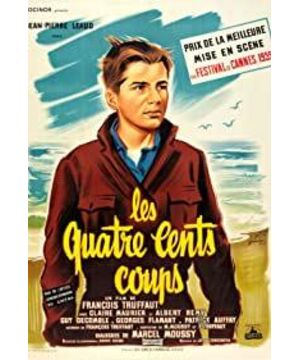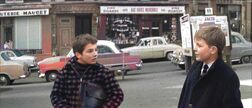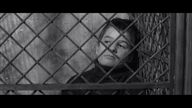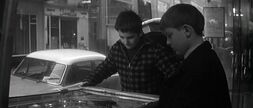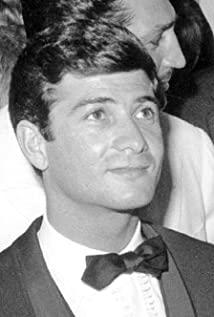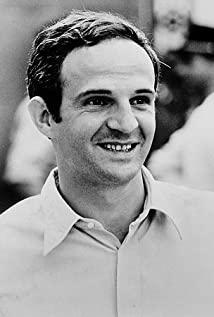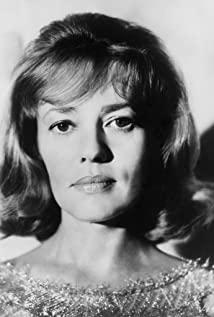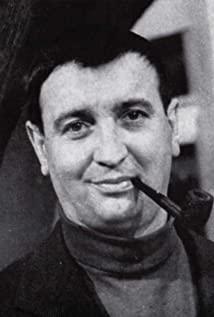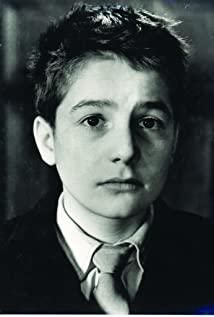But everyone has their youth. It's just that we all forget. The reason why "A Dream of Red Mansions" can be read a hundred times is because he uses delicate strokes to evoke everyone's memories of youth. Just like the last scene in "Four Hundred Blows", Antoine saw the sea, and there was an expression on his face that only teenagers have - hope, helplessness, peace, and injury.
The two boys were running through the crowd in a panic, one wearing a plaid jacket, holding an old-fashioned typewriter tightly in his arms, the other wearing a gray coat, looking around from time to time. Even with the rush of people, we can see at a glance that the two children must be "conspiring" something bad.
This is a scene from the movie "Four Hundred Blows". It depicts the scenes we can see everywhere in our life very realistically: you must have seen a teenager who pretended to be deep and secretly learned to smoke; you must have seen a little boy who thought he was cool and swaggered across the road with his hands in his trouser pockets; You must have also seen middle school students who appeared in the ice rink during class time, giggling and laughing, but there was an unconcealed panic on their faces.
"Four Hundred Blows" is French director Truffaut's debut, a film with a personal style, without a complete story structure, using non-professional actors (but this film also pulls Jean-Pierre Leo De (the actor's acting career), the subject matter has nothing to do with politics, and the editing technique boldly uses long shots. No wonder the outside world commented that Truffaut represented the French New Wave film - "to make a film, the important thing is not to make it, but to be a filmmaker".
This film doesn't seem to tell a very complete story. It's just a splicing of fragments one after another, which allows us to gradually understand such a boy: his family is not very good, and his family of three is crowded in a cramped tube building; his mother Aimi has a surly temper. ; The stepfather looks gentle, but there is a sense of indifference; the teachers in the school are more emphasizing their own majesty and impatient with the students. Such a little boy is not bad in essence, but has a hint of naughty in adolescence, but step by step toward the abyss of crime. First, he was punished for laughing in class and was punished to do his homework. Then he skipped class because he was afraid of scolding for not completing the homework. He also lost the teacher's trust because he had to make up a big lie because he skipped class. Designated as "plagiarism". Disappointed, he decided to run away from home, and the trouble got bigger and bigger, until he was finally sent to a juvenile detention center.
Every now and then, the details in the movie collide with my memories of some silly things I did in my youth. Although I didn't steal and smoke as outrageously as the male lead, nor experienced his disappointment with his family (witnessing his mother kissing other men), nor did he have such a rude teacher. But I can relate to his thoughtfulness.
I have also lied out of fear of punishment. When I was in elementary school, my Gameboy was confiscated in class. The teacher wanted to invite the parents. In a hurry, I said that my mother was sick and was in the hospital. Of course, I was exposed and beaten.
I also secretly marked the words that I liked, sighed for a long time, and shed tears for it. This is "Young people don't know the taste of sorrow, but they say it for the sake of new words." I even quoted those paragraphs when writing the article. Fortunately, my teacher was not intimidated by my pretentious writing, but has been encouraging me to write, and even helped me to contribute to magazines and newspapers, so that when I was 13 years old, I got my first manuscript fee in life.
I also slipped into an Internet cafe to play games because I didn’t want to go to cram schools, but I was never caught. And all kinds of careful thoughts, including suspicion, vanity, conceit, etc. Now that I think about it, I have committed all the "eight deadly sins" when I was only ten years old.
Teenagers have nothing to celebrate. Traditional literature doesn't like to write about teenagers. In Chinese dramas, there are ugliness at the end of life, and the positive characters who are upright and resolute in the middle-aged and above are generally old students, while Xiaosheng is just a side character. Few major directors are willing to portray teenagers in film and television works-unless it involves love scenes. Even if there is one or two writings about young people, they must be praiseworthy, positive, positive, and inspiring. The entanglement of those little boys and girls, "It will be natural when you grow up."
But everyone has their youth. It's just that we all forget. The reason why "A Dream of Red Mansions" can be read a hundred times is because he uses delicate strokes to evoke everyone's memories of youth. Just like the last scene in "Four Hundred Blows", Antoine saw the sea, and there was an expression on his face that only teenagers have - hope, helplessness, peace, and injury.
View more about The 400 Blows reviews


